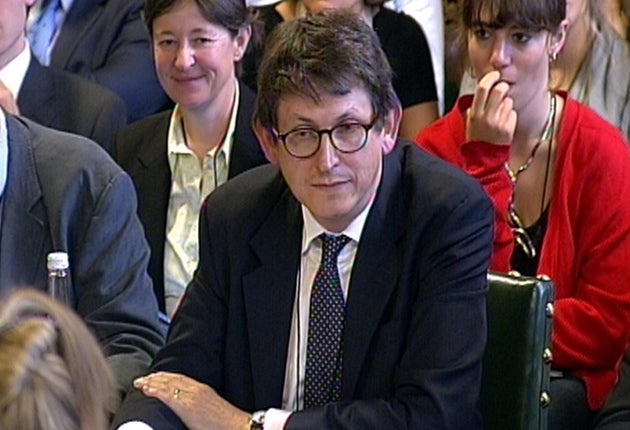Future of 'The Observer' in doubt following huge losses

Your support helps us to tell the story
From reproductive rights to climate change to Big Tech, The Independent is on the ground when the story is developing. Whether it's investigating the financials of Elon Musk's pro-Trump PAC or producing our latest documentary, 'The A Word', which shines a light on the American women fighting for reproductive rights, we know how important it is to parse out the facts from the messaging.
At such a critical moment in US history, we need reporters on the ground. Your donation allows us to keep sending journalists to speak to both sides of the story.
The Independent is trusted by Americans across the entire political spectrum. And unlike many other quality news outlets, we choose not to lock Americans out of our reporting and analysis with paywalls. We believe quality journalism should be available to everyone, paid for by those who can afford it.
Your support makes all the difference.Guardian Media Group (GMG) is considering closing the world's oldest Sunday newspaper, The Observer, after the group's disastrous performance in the past year when it recorded losses of close to £90m.
The Observer, which was founded in 1791 and was a platform for the early writing of George Orwell, was bought in 1993 by the publishers of The Guardian, who promised to safeguard its future.
But on Friday, GMG reported that the group had lost £89.8m, compared to a profit of £306.4m the previous year, when it sold 49.9 per cent of its share in Trader Media Group, which publishes the car sales magazine Auto Trader.
The figures showed that Guardian News & Media (GNM), the division that includes both The Guardian and The Observer, lost £36.8m, considerably worse than the loss of £26.4m the previous year. The Observer is thought to lose around £10m a year.
GMG is thinking of replacing the Sunday paper with a Thursday magazine, which may be branded as The Observer in a nod to tradition. Journalists at the paper are deeply unhappy that a dummy edition of such a magazine is being prepared and some are lobbying to ensure it never reaches the news-stands. The alternative would be to keep the newspaper running as a slimmer product.
Despite of the losses at GMG, Alan Rusbridger, the editor-in-chief of both GNM titles, received an 11 per cent salary rise to £445,000 last year. The Guardian's ambitious strategy is to turn itself into the world's strongest online "liberal" brand, spending heavily on developing its presence in the US.
The Observer brand does not fit neatly into this strategy, though its copy is subsumed into guardian.co.uk each Sunday, something which has upset some Observer journalists who do not wish to see their newspaper become a Sunday edition of The Guardian. There is a feeling on the older newspaper that it has been made a scapegoat for GMG's profligacy in developing The Guardian's online presence.
Donald Trelford, who edited The Observer from 1975-1993, said he hoped the paper would survive. "The Observer has been threatened with closure for at least the last 34 years. When I became editor, I was told it might last six months. It's lost a number of lives since but let's hope it has got a few more left."
Join our commenting forum
Join thought-provoking conversations, follow other Independent readers and see their replies
Comments